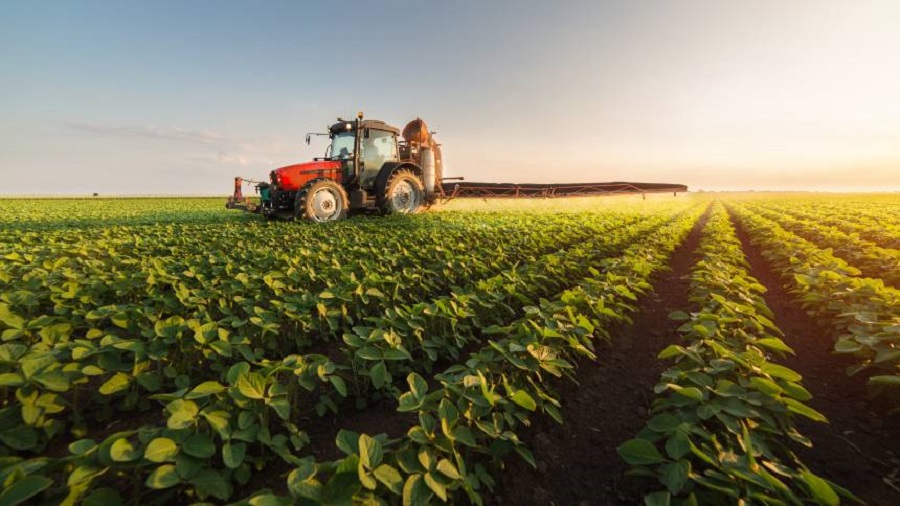RIO DE JANEIRO, BRAZIL – Part of a highly environmentally-targeted sector, Agrogalaxy, which this week relaunched its IPO, wants to show investors that it is able to push the sustainability agenda into the limelight, particularly among small and medium-sized producers.
The agricultural input resale platform, controlled by Aqua Capital private equity fund, made over 70% of its 2020 revenue of about R$4.2 billion (US$804 million) from the sale of agrochemicals and fertilizers.

However, it has drawn up a list of products that it intends to discontinue from its portfolio – products that are authorized in Brazil but considered dangerous by the World Health Organization (W.H.O.) – and it has been gradually working to replace them with environmentally friendly biological alternatives.
In its sustainability report, the company has committed to stop selling products based on the methomyl active ingredient by 2025. This insecticide is used against caterpillars and is extremely common in Brazilian crops.
The product was chosen for its high sales volume and for having a suitable biological substitute, said operations director Sheila Albuquerque.
And why not discontinue sales immediately?
The plan is to encourage sales of biological products (with higher added value) to promote the adoption of the alternative.
However, the road is long. In 2020, the so-called “specialties” segment – where the category fits – accounted for 6.2% of the company’s revenues.
With a network of over 100 stores based on a series of acquisitions by Aqua Capital, Agrogalaxy’s main goal is to consolidate a market that is as powerful as it is disperse.
In the United States, the 5 major resellers hold some 60% of the market, but in Brazil the top five’s market share does not exceed 5% – and the majority of the 550 distributors are dispersed in small regional networks across the country.
While large producers are served directly by the input industry, distributors such as Agrogalaxy serve mainly medium and small-sized producers, who require additional technical assistance to care for their crops.
The company runs a precision agriculture agtech, GeoData, which enables to see the degree of fertility and the best recommendation for product use through soil analysis and satellite mapping.
“We have a group of over 400 field agronomists who go to the farmer’s area, get to understand the soil, what the farmer will plant, and recommend the best products and the best practices,” CEO Welles Pascoal said. “With that, we are able to produce more at the best cost. No new areas need to be opened for production to keep growing.”
Agrogalaxy also wants to enter the positive impact agenda, to go beyond mitigating environmental risks associated with agribusiness and is now starting to enter low-carbon agriculture.
The company has just founded the Agrogalaxy Institute to connect a network of grower partners to test crop protocols to be developed by startups and universities.
“Our goal is to have our own protocols, our own trials for low-carbon agriculture and regenerative practices,” says Albuquerque. This is the same path taken by large input industries, such as Bayer, which is starting to test low-carbon practices – and assessing how much CO2 they are able to retain in the soil.
Officially founded as a platform in late 2019 after a series of acquisitions, Agrogalaxy was born with a sustainability committee, coordinated by board member Tarcila Ursini, an expert in ESG practices. And also with reports to account in the standards of the Global Reporting Initiative (GRI), something that many veteran company have yet to deliver.
In addition to the growing pressure for sustainable practices, the initiative has Aqua’s fingerprints on it. The US$650 million fund focused on food and agribusiness comprises 20% European capital, with significant participation from American investors too, and is committed to reporting on environmental and social factors.
The trend towards sustainability in the field – and on the table – is also reflected in its portfolio. Aqua controls Biotrop, a company of biological inputs for agriculture, and has a stake in Puravida, a natural and organic food brand.
THE IPO
Agrogalaxy was planning a public offering early this year but canceled it in March when volatility affected demand for its shares. Now it has reduced expectations in order to reach the stock market.
The plan is to raise approximately R$400 million in a primary offering, in which the resources go into the company’s cash flow. In its original design, the company intended to raise at least R$1.2 billion, of which half would be transferred to the cash flow and the other half to the partners – in an operation that would leave the company with no controlling shareholder.
Aqua holds about 60% of the company’s capital and the remainder is distributed among the former owners of the acquired chains. The Spectra fund also has a stake.
Officially launched yesterday, the offering will be restricted, with a presentation to a few investors and a more accelerated timeline, with an expected closing price on Thursday.

